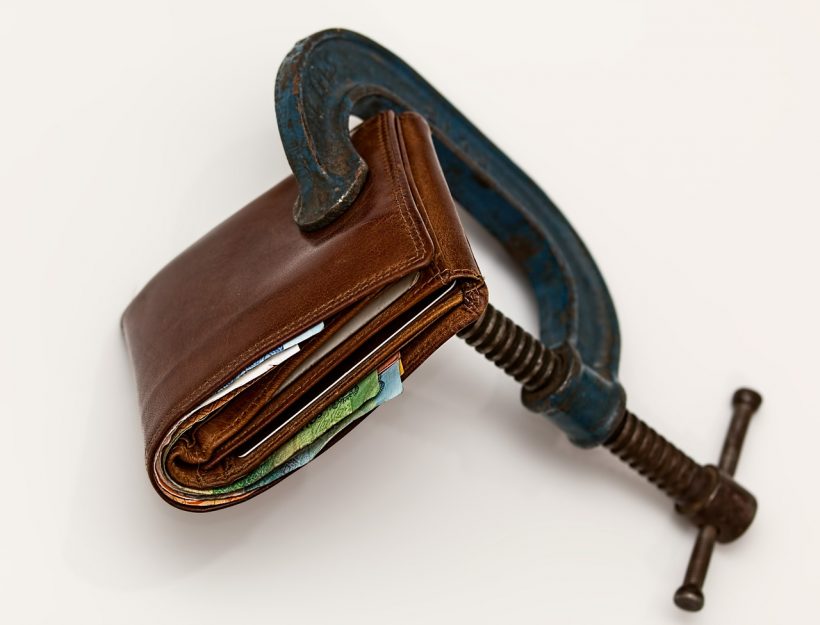Debt is a significant problem in the lives of so many people. What starts as a loan here or a bit of credit card debt there can escalate rapidly into something uncontrollable and life-consuming. When you reach your credit limit and need to extend it repeatedly, the repayments eventually become massive in comparison to your income.
Debt can cause so many problems in a person’s life. From the stress and anxiety that surround continually worrying about the spiral of debt that you are in, through to the potential to damage relationships, tear apart families, and much worse.
Nipping your financial problems in the bud at the earliest opportunity is vital. However, if you have already gone too far with your money problems, then you will need to look for solutions that can pull you back from what may seem like a cliff edge.
Reaching Out for Help
Debt can always feel as though it is a never-ending problem. When your credit cards are maxed out, you end up only paying off the interest each month. And, the higher the debt, the higher the interest payments.
Missing payments on any debt can incur charges. Going over your overdraft limit will also do the same. These charges rack up and make your overall debt even harder to pay off. Your monthly payments will increase.
If this is a situation that you find yourself in, then it is important to acknowledge that you are not in control of your finances. Accepting that the problem is too big for you to deal with on your own is your first step to being able to overcome it.
There are many places that you can go for support with your debts. The first thing that you need to do is to make sure that somebody who is close to you knows the problems that you are facing. Hiding money problems from loved ones can add an extra layer of emotional distress, and can ultimately cause a breakdown of trust between you. You may be able to get help and advice from your loved ones. This may come in the form of practical help in finding you ways to reduce your financial outgoings, or offering you emotional support.
A loved one may offer to lend you money. However, you should always consider the implications of a loan from someone that you are close to and if you were unable to repay it.

Get Support From Debt Charities
There are many debt charities that may be able to help support you through the complex issues you’re going through. They can help you learn how to manage your debt, how to deal with the emotions and stress that come with your financial situation and the ways that you can budget in a more effective manner.
You should not feel worried about how you will be judged if you are reaching out to a charity for support. They will have trained staff who will be understanding of the situation that you find yourself in and who can signpost you to every type of help that is available and relevant to you.
Exploring Debt Settlement
In severe cases of debt, you may need to reach out to someone who can help to negotiate your position with your current lenders. McCarthy Law Debt Settlement Lawyers are one such company that can get you a settlement that will allow you to carry on with your life without the burden of debt hanging around your neck. They can also help you avoid bankruptcy.
Solicitors can approach loan companies on your behalf and make them lower the total amount that you owe. This may result in a reduced payment plan to help you manage the repayment.
Taking Out a Debt Consolidation Loan
If you are treading water with your debt, but are not yet sinking, then you may have more options open for fixing your problems. One such solution is to consolidate your debts.
When you owe money to several different companies, you will be dealing with multiple interest fees. The interest rates on your various debts may vary wildly, and some debts may never get reduced on account of the interest rates being too high to beat the minimum monthly repayment.
By combining all of your debts into one single repayment, you will be dealing with just one company and have one lower interest rate. Overall, this means that your monthly outgoings will be considerably lower and much easier to manage.
Once you have taken out a consolidation loan, you will have simplified your debts. This means that you will no longer have debts on your credit cards. With a clear balance, it may be tempting to see these as potential sources of money again. However, this kind of thinking is dangerous and will land you in a sticky situation very quickly.
Once you have cleared your credit cards, get in touch with the company that provides them and cancel them all. If you do not have any available credit to tempt you, you will not use it.
Defining the Order of Repayments
If your debts are just about manageable, learning to prioritize your debt payments may be all that you need. Look at interest rates on all of your debts and work at getting rid of the highest percentages first.
Typically, the order that debt interests go in is that payday loans are the worst offenders, often racking in at over a thousand percent interest. This means that if you leave this debt unpaid, you could end up paying for a very small loan for many, many years.
You should be looking at store cards next. There are similar to credit cards but typically have a higher interest rate. This kind of debt should be taken out only if you intend to pay it soon after the purchase.
Next on your list should be your credit cards. After this, you will be looking at secured and unsecured loans.
Focusing your attention on driving any spare cash you have into the worst offending debt will help you manage your overall debt.
Practical Tips for Managing Your Finance
To fully overcome your debt problem, you need to change your relationship with money. This means going through your spending with a fine-tooth comb and really coming to grips with the areas that are a matter of concern.
To do this, you should break down your entire spending and work out what all of your outgoings are. Get your bank statements out, and create a spreadsheet that tracks everything.
Go through all of your previous spendings and start to list everything, beginning with your major essential bills. These include items such as your rent or mortgage payments. Then you will need to add your utility bills, including gas, electricity, phone, and broadband. Insurance policies on your home are also significant and should be listed as an essential expense. Your loans, credit cards, and other debts should follow next.
Next up, list down anything that is not essential. This may include TV and streaming subscriptions, gym memberships, club fees, and any other regular outgoing that you could live without.
After this, the next step will be to try to work out how much money you spend on variable items like food and transport. For that, you will need to look at your spending in these areas over a few months. Make sure you’re honest with yourself. Don’t try to make it look as though you spend less. This is counterproductive as it will mean that when you come to it, you will not be budgeting a realistic amount. Divide your spending over that period to find the average.
Add all of these together and compare the total amount against your income. You should have money to spare each month, if you don’t, you will need to make some drastic cutbacks.
Cancel any subscriptions that you can live without. Look at finding cheaper suppliers for all of your utilities and your insurance policies.
Have a look at all non-essential spending and see what you can completely do without, and what you can find cheaper elsewhere. If you are to get yourself out of debt, you need to learn to reprioritize your spending.
Time to take control and swim back out of the debts that have been drowning you!

